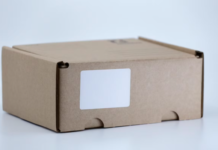When it comes to protecting your home, one of the most important steps you can take is securing home insurance. Whether you’re a first-time homeowner or have owned multiple properties, understanding the ins and outs of home insurance ensures you’re fully prepared in case disaster strikes. From covering unexpected repairs to protecting against natural disasters and theft, the right home insurance policy is an essential part of safeguarding your home and belongings.
In this guide, we’ll walk you through what home insurance covers, factors to consider when choosing a policy, and tips for ensuring you’re getting the best coverage for your needs.
Understanding Home Insurance Coverage
Home insurance is designed to protect your property and possessions from a variety of risks. Typically, it covers four main areas:
- Dwelling Coverage: This protects the physical structure of your home, including the walls, roof, and foundation, from damage caused by covered events such as fire, storms, or vandalism.
- Personal Property Coverage: This aspect covers your personal belongings, such as furniture, electronics, and clothing, in the event of theft or damage from covered risks.
- Liability Coverage: If someone is injured on your property or if you or a family member cause damage to someone else’s property, liability coverage helps cover the costs of legal fees and medical bills.
- Additional Living Expenses (ALE): If your home becomes uninhabitable due to a covered event, ALE will help cover the cost of temporary living arrangements, such as renting a hotel room or apartment.
Factors to Consider When Choosing a House Insurance Policy
Choosing the right house insurance policy can be overwhelming, but understanding what factors to prioritize can make the decision-making process easier. Here are a few things to consider:
1. Coverage Limits and Deductibles
The amount of coverage you need will depend on the value of your home and possessions. Ensure that your dwelling coverage is sufficient to rebuild your home in the event of a total loss. Similarly, make sure your personal property coverage adequately reflects the value of your belongings. Be mindful of your deductible, as a higher deductible can lower your premiums but means you’ll pay more out-of-pocket in the event of a claim.
2. Types of Homeowners Insurance Policies
Homeowners insurance policies come in various forms, from basic to comprehensive coverage. The most common types are:
- HO-1: Basic coverage that protects against a limited list of perils.
- HO-2: Broad coverage that protects against a wider range of perils.
- HO-3: The most common policy, offering coverage for most risks except those specifically excluded (such as flooding or earthquakes).
- HO-5: Comprehensive coverage that protects against all perils, except those excluded by the policy.
3. Exclusions
It’s crucial to review the exclusions in your policy, as certain risks may not be covered. For instance, standard policies often exclude natural disasters like floods, earthquakes, and landslides. If you live in an area prone to these events, consider adding additional coverage or a separate policy.
Tips for Getting the Best Home Insurance Coverage
To make sure you’re getting the best deal and adequate coverage for your home, here are some useful tips:
- Shop Around: Don’t settle for the first policy you come across. Compare different insurers and policies to find one that best meets your needs.
- Bundle Your Policies: Many insurance providers offer discounts if you bundle your home insurance with other types of insurance, such as auto or life insurance.
- Review Your Policy Regularly: As your home value increases or your possessions change, it’s important to update your policy to reflect these changes. Failing to do so may leave you underinsured.
- Maintain a Good Credit Score: Many insurers use your credit score as a factor in determining your premiums. Keeping your credit score healthy can help reduce your insurance costs.
Conclusion
Home insurance is a critical tool in ensuring the safety and protection of your property. By understanding what home insurance covers, evaluating different policies, and regularly reviewing your coverage, you can rest easy knowing that your home is properly protected against unexpected events. Take the time to research your options, and don’t hesitate to consult an insurance professional to help you make an informed decision. Your home is one of your most significant investments, so make sure it’s safeguarded with the right home insurance policy.




































